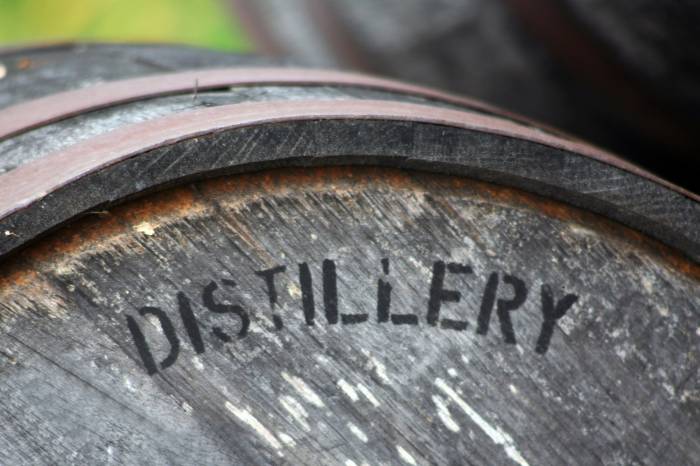US Spirits Exports to Canada Plunge 85% Amid Tariff Disputes as Industry Faces Global Shifts
American whiskey, tequila, and RTD cocktails see triple-digit growth, but trade tensions and rising costs reshape global spirits market
2025-10-14

At this year’s Bar Convent Berlin trade show, industry leaders gathered to discuss how spirits brands can navigate and even benefit from global economic disruption. The seminar, titled “Navigating Economic Uncertainty: Turning Global Disruption into Opportunity,” brought together Nick Gillett, managing director of Mangrove Global; Christine LoCascio, chief of policy, strategy and membership at the Distilled Spirits Council of the US (Discus); and Mehul Brahmbhatt, founder of Tharra Company.
Nick Gillett opened the discussion by highlighting the unique advantages that smaller spirits brands possess in a volatile market. He pointed to agility and founder-driven passion as key assets. According to Gillett, these qualities allow smaller companies to respond quickly to sudden changes, such as new tariffs or supply chain disruptions. He referenced recent global events, including shifts in US tariff policy, that have created both chaos and opportunity in the market. Gillett argued that when large-scale disruptions occur, smaller brands that can move fast and adapt their products or strategies are often able to seize new market share.
Gillett also addressed the ongoing challenges facing the industry, such as rising costs, inflation, and increased taxes. He explained that while these pressures affect all players, smaller brands can often adapt more quickly. For example, changes in packaging can help offset new costs, such as the UK’s Extended Producer Responsibility (EPR) scheme, which will impose a tax of £192 (about $255) per ton of glass in 2025-2026. Gillett said that for his company, which imports thousands of tons of glass, passing these costs to customers is unavoidable. However, he noted that switching to alternative materials like aluminum, which is lighter and infinitely recyclable, can help mitigate some of the financial impact, even though it is still subject to the EPR tax.
The discussion also touched on the impact of international trade disputes. Gillett recalled the 25% EU tariff on American whiskey during Donald Trump’s first presidency, which made US products more expensive in Europe and opened the door for other whiskey producers. He suggested that American whiskey has not fully recovered from the loss of market share during that period. More recently, US spirits exports to Canada dropped by 85% in the second quarter of 2025 after American products were removed from Canadian shelves in response to renewed tariff threats. Gillett emphasized that brands able to quickly adjust their marketing and product offerings in response to these shifts are best positioned to benefit.
Christine LoCascio echoed Gillett’s views on the importance of agility. She described the US spirits market as challenging but resilient. In 2024, spirits accounted for 42.2% of the total beverage alcohol market by supplier revenue, outperforming both beer and wine. The value of the US spirits market in 2024 was just over $37 million, and in the first half of 2025, spirits continued to outpace wine and beer in both volume and value, according to NielsenIQ data. While overall volume declined by 1.1% year over year, value sales increased by 1.3%.
LoCascio highlighted several growth trends in the US market over the past decade. American whiskey sales have climbed by 93%, while cocktails and ready-to-drink (RTD) products have grown by more than 900%. Tequila and mezcal sales have increased by over 200%, and vodka by 25%. Supplier revenues from the fastest-growing categories have nearly tripled, reaching $16.3 billion. Irish whiskey has also seen significant growth.
Despite these positive trends, LoCascio acknowledged that exports of American spirits have declined in 2025, with shipments to the EU down about 12% in the second half of the year and overall exports down by about 9%. She attributed some of this decline to ongoing trade uncertainty and shifting global demand. However, she pointed to recent developments that could create new opportunities for US producers. Earlier this year, India reduced its tariff on American whiskey from 150% to 100%, a significant though still high reduction. Türkiye also lifted its 70% retaliatory tariffs on US goods after seven years. LoCascio said Discus is working with the US administration to promote open markets and secure new export opportunities for American spirits.
Tourism and education were identified as additional areas of opportunity. LoCascio noted that distillery tourism is an important economic driver for US producers, helping to build brand loyalty and consumer relationships. She also emphasized the importance of energy efficiency, explaining that Discus has partnered with the Environmental Protection Agency to help distilleries reduce energy costs and improve sustainability.
Throughout the seminar, speakers agreed that while the current economic environment presents significant challenges, it also offers opportunities for those who can adapt quickly. Brands that are able to change packaging, adjust pricing, and innovate without sacrificing quality are more likely to succeed. The panelists encouraged spirits producers to embrace change and use disruption as a catalyst for growth rather than a barrier.
Founded in 2007, Vinetur® is a registered trademark of VGSC S.L. with a long history in the wine industry.
VGSC, S.L. with VAT number B70255591 is a spanish company legally registered in the Commercial Register of the city of Santiago de Compostela, with registration number: Bulletin 181, Reference 356049 in Volume 13, Page 107, Section 6, Sheet 45028, Entry 2.
Email: [email protected]
Headquarters and offices located in Vilagarcia de Arousa, Spain.